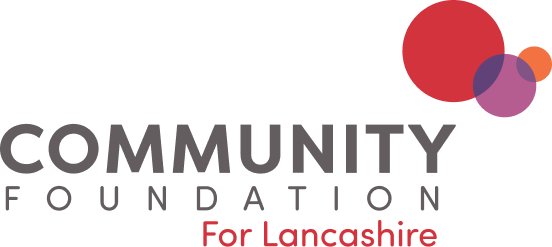
Our News
Dig In: How One Veteran-Led Garden Is Transforming Mental Health Support in Lancashire
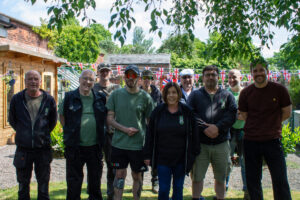
For Mental Health Awareness Week, the Community Foundation for Lancashire (CFL) visited Dig In, a veteran-led mental health charity quietly making a profound impact from within the protective walls of a hidden garden.
Tucked away in a private walled garden near two local barracks, Dig In offers far more than soil and spades. It provides a lifeline for veterans and their families, many of whom are navigating life after service, coping with trauma, or seeking connection and routine.
With support from the Community Foundation for Lancashire, Dig In has been able to grow its reach and impact, helping hundreds of people find purpose. Awarding over £44,500 from the United Utilities Lancashire Community Fund, COVID19 Community Support Fund and CFLM Cost of Living Support Fund.
Participants can take part in growing food, crafting woodwork, learning new skills, or simply enjoying tea and conversation among others who truly understand.
This year, as the national conversation turns toward community-based responses to mental health, we sat down with Dig In members to hear how grassroots support and shared experience can rebuild lives.
Claire’s Testimonial
“I’m the manager here at Dig In. I’ve been involved with the charity for about 11 years now. I started off as a volunteer after my husband was referred here.
The lady who set the charity up is a horticultural therapist and her husband was a veteran who had a diagnosis of PTSD. She set this up as a fairly simple gardening project to begin with. My husband also an Army veteran, suffered a breakdown in 2012 and spent some time in hospital. When he came out, I had to give up my job at the time to look after him.
I heard of Dig In and brought him, spending time with people who had that same lived experience, helped make him realise he’s not on his own. This place also gave me a bit of a break from those caring responsibilities, which had changed the dynamic of our relationship. You become more like a parent than a partner. There was that bit of respite for me.
As my husband improved, our home life improved. We were able to start doing a lot of things we hadn’t been doing, like going on holidays, maybe going out for a family meal. Things that we weren’t able to do before.
Now, I’m responsible for fundraising, day-to-day running of the project and pretty much everything else. What keeps me inspired is knowing that it’s not just the people I see here being helped, but when they go home to their families, it’s making a difference to them as well.
Our community is mostly veterans, but we do have some people still serving. Many of them suffer from mental health problems, from mild adjustment disorders to severe PTSD. These aren’t usually short-term problems. They can go on for years, or come and go. We always let them know that we’re still here, whenever they might need support.
We offer horticulture and woodworking. We’re really hands-on, activities that keep people busy, distracted, and teach new skills. The work is therapeutic and helps people reintegrate back into civilian life. We work with schools and the council to improve or create outdoor spaces, which means people can walk around the community and see things they’ve helped build. That’s huge for morale.
We’ve worked with the Community Foundation for Lancashire for years and received different grants for different projects. I’ve always found them very pleasant and easy to work with. The application process is simpler than some, and when I’ve had to contact them, they’ve been really approachable. I love when funders visit and see the work they’re supporting. Of all the funders I’ve worked with—and there’ve been a lot—they’re up there with the best. I always feel comfortable applying. I know the application will be looked at fairly, and that means a lot.”
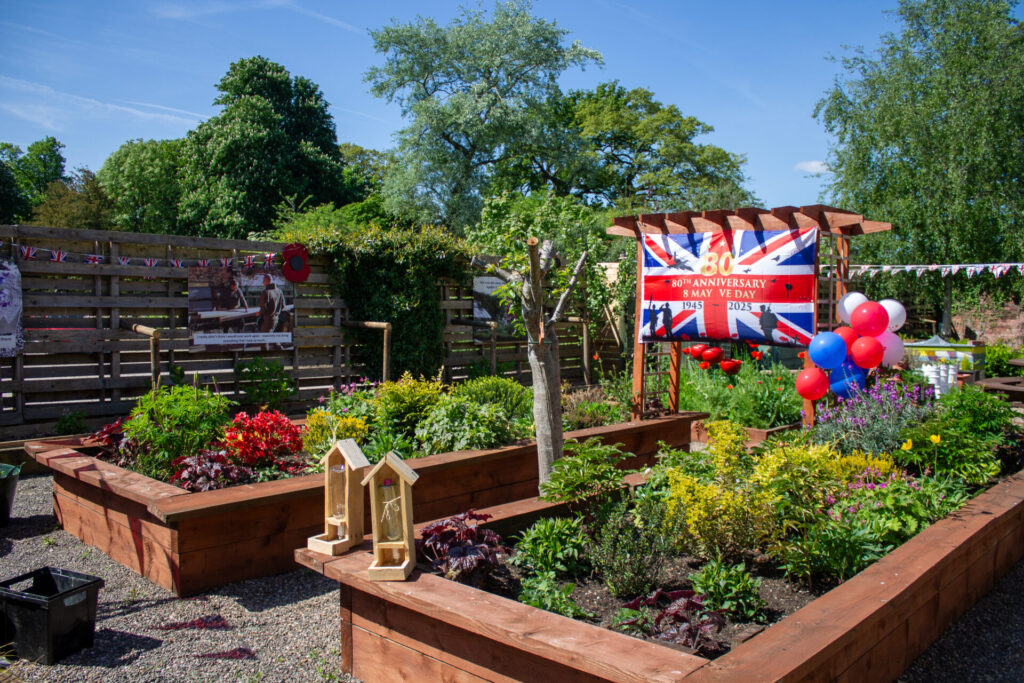
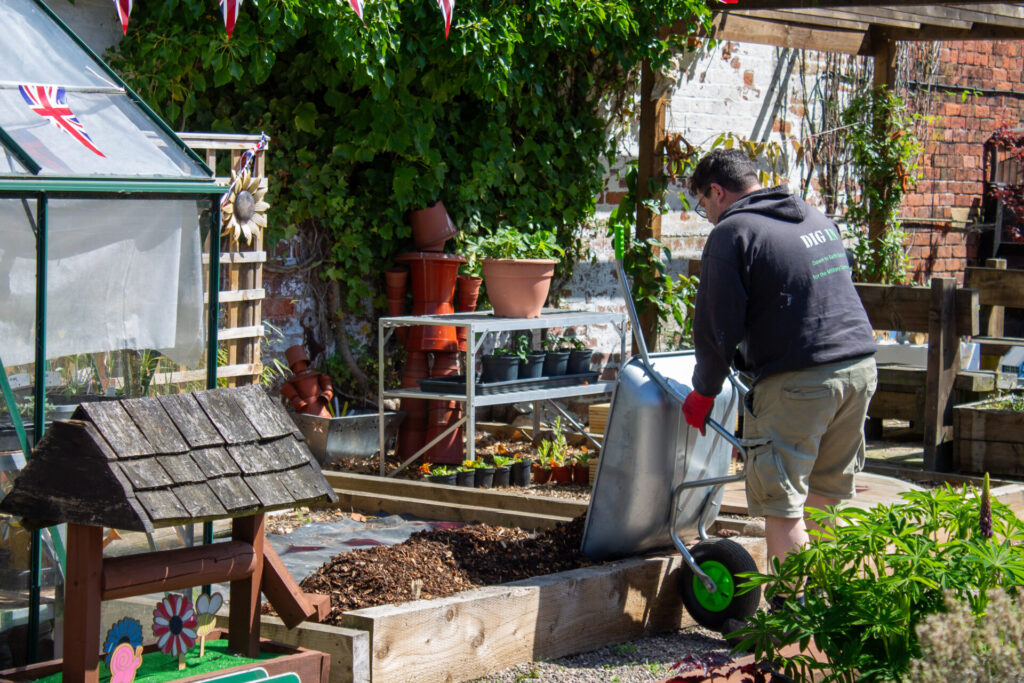
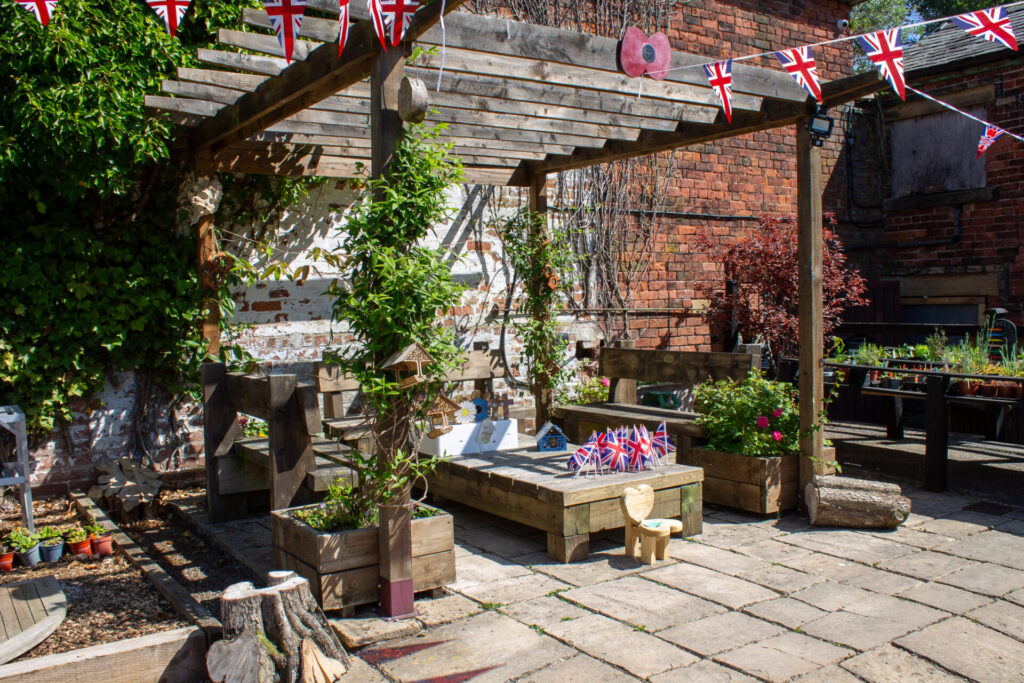
Bob’s Testimonial
“I originally got involved with Dig In after a breakdown which saw me admitted to hospital. I came out and I was having therapy, and the therapist mentioned that there’s a place called Dig In that were doing a woodworking course. So, I was dragged here by my wife and that’s it. I’ve been here 11 years, and it has just changed my world.
I wasn’t in a very good place at all. I wouldn’t go out of the house or anything. But coming here, the friendliness, the camaraderie, the work, it just opened another door for me. Dig In brings into my life a purpose. A purpose to get up in the morning. Purpose to come into work. A purpose to help people. And a purpose to look after myself as well.
My job at Dig In is to run the woodworking workshop and run any projects that we do for schools and other community groups. But mostly, I’m here to look after the guys. I’ve been through it. I know what they’re going through, and I know they need that support. So that’s what I’m really here for.
My favourite thing about Dig In is 3:00, when we go home, I’m joking! It’s the camaraderie. We’ve all been through the same stuff. We’ve all served. It’s a good laugh.
Twelve years ago, I was a mess. I was on the verge of taking my own life and I couldn’t see a future. Now, I smile a lot more. I’ve got my sense of humour back, although my wife would argue with that.
Dig In works because it’s Dig In. It’s just a special place. It’s quiet if you need quiet, it’s loud if you need. There’s no pressure to do anything. You see the guys get involved and blossom again. That’s my reward, seeing somebody blossom again. To come back to maybe not what they were, but to come out of themselves.”
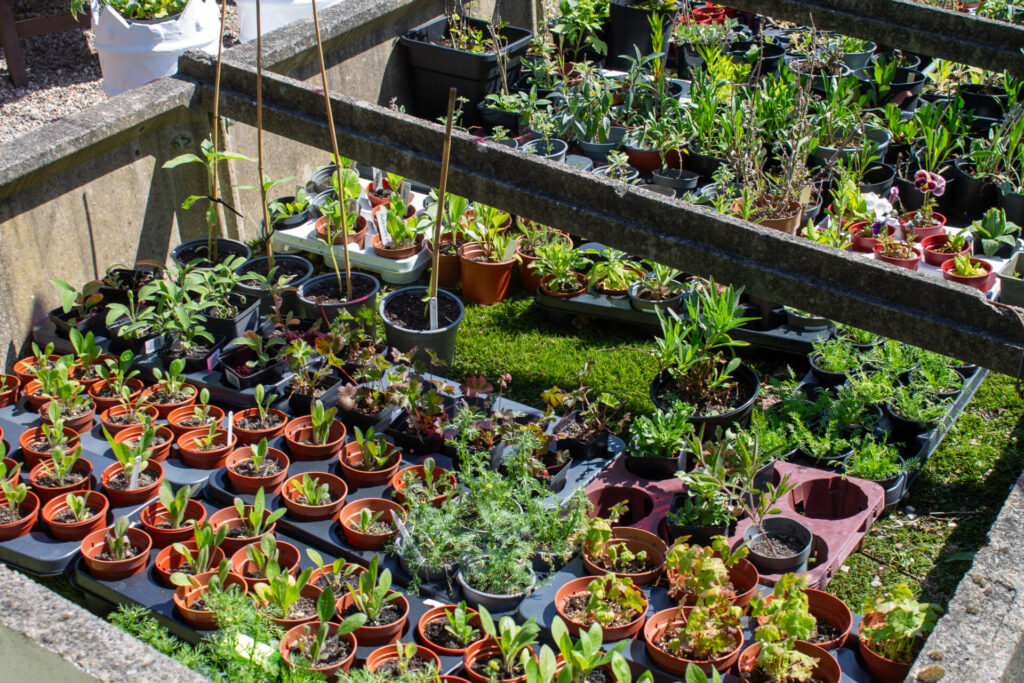
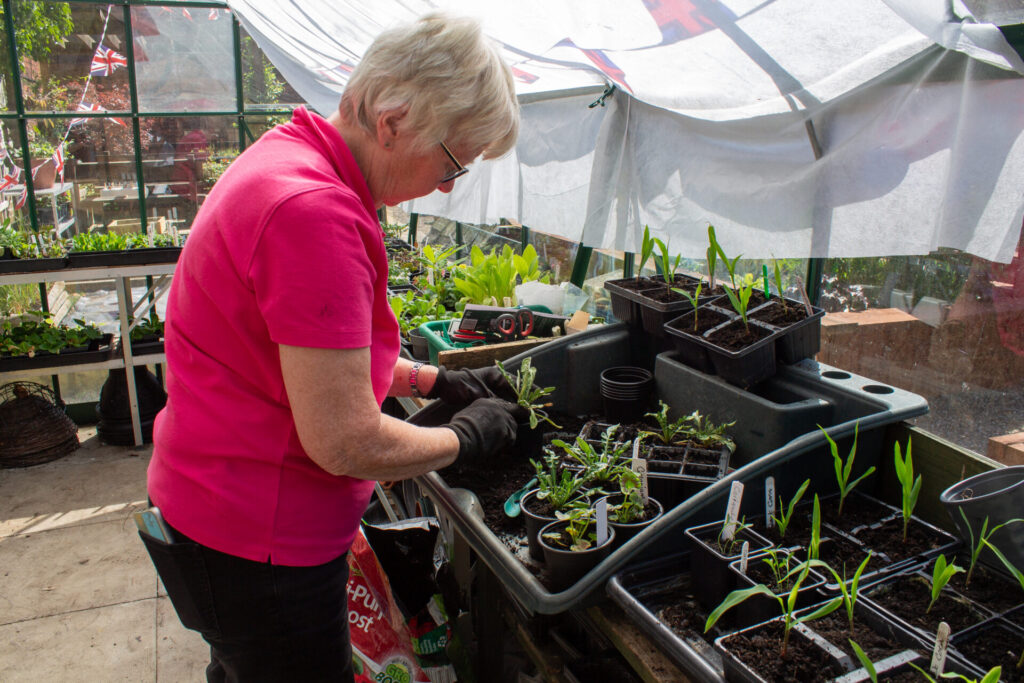
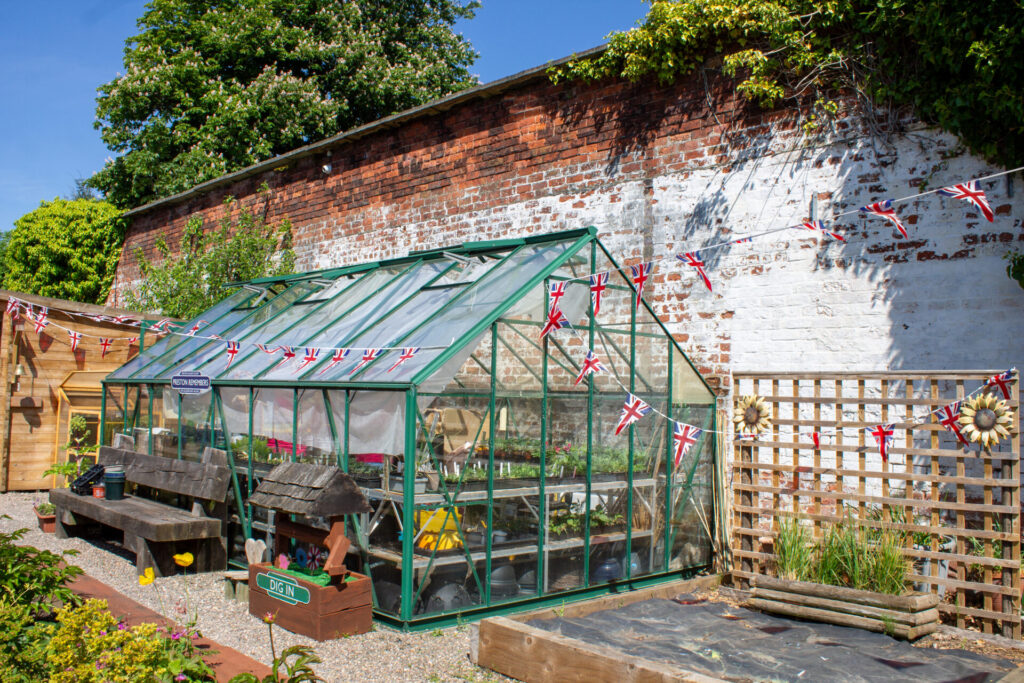
Luke’s testimonial
“I originally got involved with Dig In because I was very unwell. I was doing lots of courses through the NHS, around about that sixth or eighth mental well-being course, my support worker put me in contact with Dig In. I met Bob, and I’ve barely had a day off since. That was maybe four years ago.
I get involved with just about everything we do. Big wooden builds, climbing frames for schools, playgrounds, private jobs, usually planters or pergolas. Anything in the garden made out of wood, we’ve built it. I also do a bit of peer support for the other veterans who come through the door.
The difference Dig In has made to me is night and day. I had an awful mindset. Without being melodramatic I was getting towards the end of my rope. Slowly but surely, a purpose started building up again. I could barely speak before. Now I can laugh, joke, and even support others. It stopped me wanting to kill myself. That was my mindset—and that is such a distant past now. It’s taken away some really horrible thoughts and desires.
One of the biggest differences Dig In has made is the medication side of things. I was maxed out on antidepressants. I was taking a list of tablets. Fast forward three years, I’m on the lowest grade of antidepressants. I’m healthier physically and mentally. My spirit is bubbling now.
The NHS courses helped, but this is a physical place where you can get your teeth into something. You can get cut, bumped and bruised, just like life.
The outlook I have now is 180 from where I was. The dark place is still there, but it’s not at the forefront. I can focus on other things and be a human again. Smiling was out the window, now it’s back.
If someone wanted to come to Dig In, I’d say just walk through the door. That’s the biggest step. Everything else is a groovy bonus. You’ll be around familiar soldier shoulders. And like today when the sun shines, it shines here too, and that’s what Dig In does for your soul.”
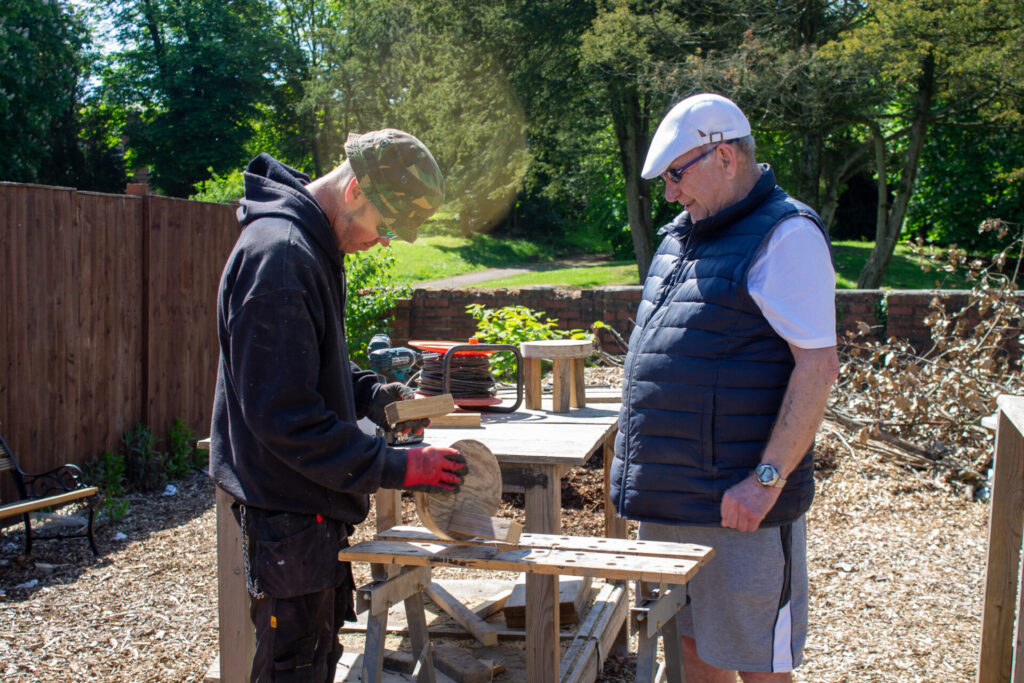
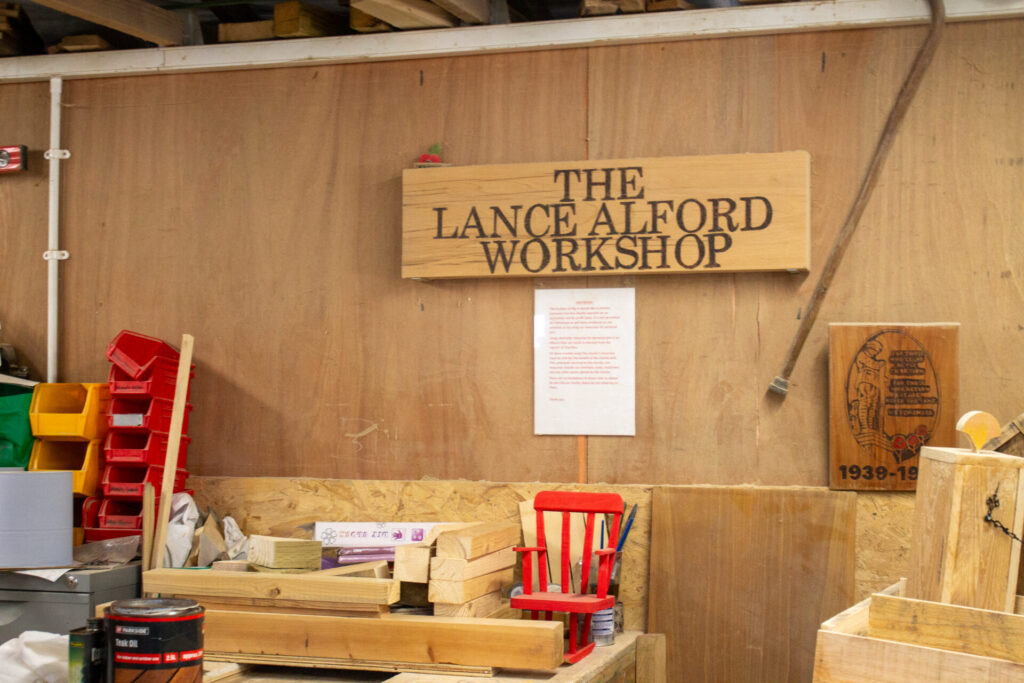
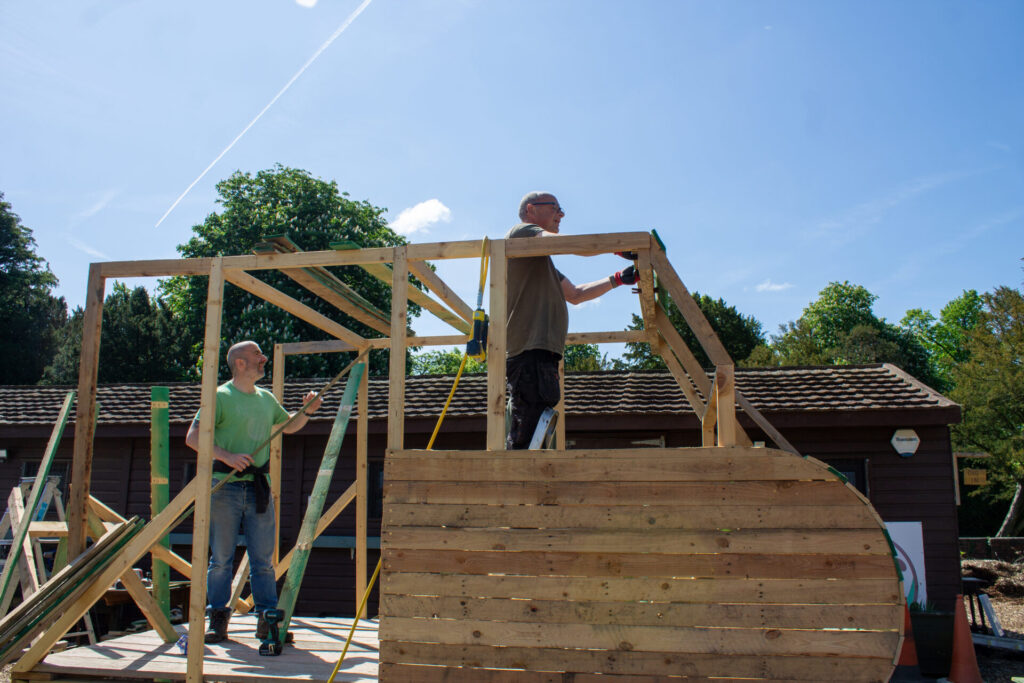
If you’d like to hear more about the work being achieve in the community sign up to our newsletter below.
